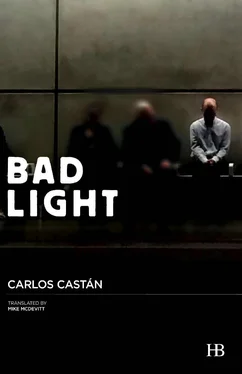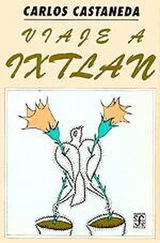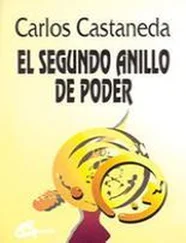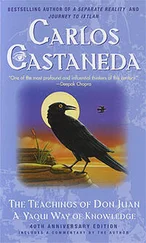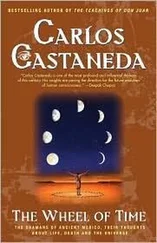Carlos Castán - Bad Light
Здесь есть возможность читать онлайн «Carlos Castán - Bad Light» весь текст электронной книги совершенно бесплатно (целиком полную версию без сокращений). В некоторых случаях можно слушать аудио, скачать через торрент в формате fb2 и присутствует краткое содержание. Год выпуска: 2016, Издательство: Hispabooks, Жанр: Современная проза, на английском языке. Описание произведения, (предисловие) а так же отзывы посетителей доступны на портале библиотеки ЛибКат.
- Название:Bad Light
- Автор:
- Издательство:Hispabooks
- Жанр:
- Год:2016
- ISBN:нет данных
- Рейтинг книги:5 / 5. Голосов: 1
-
Избранное:Добавить в избранное
- Отзывы:
-
Ваша оценка:
- 100
- 1
- 2
- 3
- 4
- 5
Bad Light: краткое содержание, описание и аннотация
Предлагаем к чтению аннотацию, описание, краткое содержание или предисловие (зависит от того, что написал сам автор книги «Bad Light»). Если вы не нашли необходимую информацию о книге — напишите в комментариях, мы постараемся отыскать её.
Carlos Castán
Bad Light
Bad Light — читать онлайн бесплатно полную книгу (весь текст) целиком
Ниже представлен текст книги, разбитый по страницам. Система сохранения места последней прочитанной страницы, позволяет с удобством читать онлайн бесплатно книгу «Bad Light», без необходимости каждый раз заново искать на чём Вы остановились. Поставьте закладку, и сможете в любой момент перейти на страницу, на которой закончили чтение.
Интервал:
Закладка:
The children would sometimes come by on Fridays. They’d arrive bearing a ton of luggage to spend the weekend. The refrigerator empty. Me barely able to get a word out. They took in their surroundings and exchanged glances before finally turning to face me. I guess the question that hung in the air was something like now what do we do ? Not in terms of that particular moment, but rather from now on, what are we going to do, how are we going to manage now that everything we once were has come apart at the seams ? With all the suitcases lying around, the travel bags stuffed with changes of clothes, pajamas, and small toys, the backpacks with homework for school, the overcoats lying in a heap, we looked like the surviving members of a family in a refugee camp. It was as if their mother had been killed in an air raid and the three of us, before fleeing, had spotted her dead body peeking out from among the ruins, her white lips stuck to the earth, her hair matted with lime scale, a hazy cloud of flies and dust. I asked myself what right I had to make them breathe the air of that tormented world of mine, the silence, the books strewn on the floor, the grime in the corners, whether I had anything other than sorrow to offer them. And I wondered if a dead father might not be preferable to a downtrodden father falling to pieces before your eyes while you’re powerless to do anything, unable to understand a thing. We would go out for a stroll every now and then, swaddled in scarves and without quite knowing where we were heading. The two of them always trailing behind, following mother duck, bursting with questions but never daring to articulate a single one. Sometimes I would take the little one’s hand and squeeze it tight. Rather than affection or the sense of security he no doubt needed, I feel that this gesture served only to convey the unwanted lesson that there is no such thing, when all is said and done, as love without weeping, time without emptiness, or flesh without tearing, and that the defeated man he now saw before him is how things always turn out when you set your heart with sufficient fervor on something, whatever it may be. In his eyes, the figure of a protective father had no doubt vanished for good, his place taken by another creature, familiar and unknown in equal measure, as lost as he was and cornered by a sorrow that mirrored his own. The scene reminded me of a fairly well-known photograph by Manuel Ferrol that has for some reason been etched in my memory ever since I first saw it and somehow sums up the mood of those first weekends in the company of my children, one called Émigrés’ Farewell , taken in La Coruña in ’56. It’s not clear whether father and son are about to go their separate ways any minute or are saying goodbye to a third person just out of shot. A rough hand attempts to embrace the child with tenderness, although it does so with great awkwardness. The two of them are crying and looking straight ahead, perhaps at the gangway of a ship. Though in our case there were no ships, or sea, or anything in sight, everything that surrounded us was shot through with that air of a dockside farewell and the certainty that someone or something was stealing, from under our very noses, a huge shipment of things we would never see again. Perhaps my son, even as I embraced him, saw his father leaving.
How long does it take for a man to die, lying on the bed without another thought in his head, staring at the ceiling, determined not to budge an inch, not to eat, to let buzzers and phones go unanswered? How long before the tears on his face dry up? At what precise moment do the relevant ducts run dry and cease flowing? There is a type of madness akin to a black nausea that tends to spread upward to the brain. Sometimes this happens at such speed that it takes on the unmistakable air of a fit of insanity. This is what happens to the occasional somewhat half-heartedly suicidal individual, as well as certain murderers of the sort that repent straight away, no sooner has the deed been done, who ask themselves what they’ve done and call the police themselves, covering the corpse laid out on the floor with kisses, drenching it with snot and words. In my case, the froth of that retching takes somewhat longer to rise. It starts in the gut and advances in slow waves like a thick foam before taking up residence among the folds of my brain, flooding that uncharted viscosity with images of skulls, and memories, and loathing, inserting the word death into every thought, with a shoe horn if need be, not as a crystal-clear concept but rather as the hazy outline of a rusty scythe or a cross driven into the earth in the midst of the trembling. And it’s hard then to pull yourself together, for the vantage point from which you survey the world retreats from the present moment and takes up position somewhere so dark that time becomes a murderous, nimble entity and death, or signs that relentlessly bring it to mind, is everywhere you look; for example, try as I might, I couldn’t stop myself from seeing some of my female friends who often dropped by the apartment in those days not as they were there and then but rather how I imagined they might be on reaching old age, and myself as a more or less banal episode from their past. Beneath their current flesh, I could already see an old woman beginning to emerge, sighing wearily while waiting in line at some market or other, for whom someone, perhaps I myself, had laid out their medicines on the bedside table. The beginnings of the odd wrinkle here and there foreshadowed a face that was not yet a reality but that I was powerless to ward off, also affecting their breath, the way they carried themselves, and the way they fell silent. In the case of Julia, it didn’t stop there; I found it impossible to be by her side without picturing her naked skull and the tomb that would sooner or later house all those bones, the pubis that ground itself against me in a frenzy, the spread-eagled femurs, the wornout shinbones that circled my waist, the jawbone that set upon my mouth in the darkness. I feel that the idea of death is like a giant crow, or any other carrion bird with huge wings like oily capes that’s able to smell sorrow from a long way off, as if it were incense dissolved in the air, and draws near whenever someone looks weak, in order to lurk close by and, depending on the conviction with which the wounded man blindly flails, to peck timidly or tear into flesh for which no one yearns.
The lifeless body of Paul Celan was fished out from a quiet spot on the Seine six miles downstream. I felt I was already halfway down a similar route. All that remained was to wait and see which riverside branch might snag my legs. A shoe would no doubt detach itself to continue its journey oceanward, like a small grave boat. I thought of someone gathering up the body and of the possibility that a breath of air might bring me back to life. But I did not, in the end, jump from any bridge. Not that time.
I took to my bed early that night in my room at the Hôtel du Nord, as the sleet continued to fall in the interior courtyard onto which my window looked, and the TV news kept replaying the same images of cars set ablaze the night before, seats burnt to a cinder, puddles of gasoline, warped scrap metal. I remember closing my eyes, then running my fingers though my own hair, imagining that my hand belonged to someone else, anyone, someone who knows that my heart is filled with bitter wells into which they do not entirely want to peer, nor look the other way, either, and who tells me, as sleep slowly comes, that there are cities in the world in which day has already broken, where people are beginning to head outdoors, fresh from the shower, to buy some bread and the morning papers and grab a freshly roasted coffee and buttered toast with marmalade on the terraces of the corner bars, and who speaks to me of the sun breaking through the most wayward of clouds and the treetops, reassuring me, in barely more than a murmur, that little by little, without my realizing, I will gather together the pieces and reassemble, with what little remains, something resembling a human being. You’ll see. I’ll see. And I doze off a few blocks from a vast river, beneath a cracked sky, in the room of a two-bit hotel where no one who knows me is aware I’m staying, hidden by the shadows of a boulevard not too far from the ranks of burnt-out cars, not so many yards from my lost footsteps. Resting means that no one can see me.
Читать дальшеИнтервал:
Закладка:
Похожие книги на «Bad Light»
Представляем Вашему вниманию похожие книги на «Bad Light» списком для выбора. Мы отобрали схожую по названию и смыслу литературу в надежде предоставить читателям больше вариантов отыскать новые, интересные, ещё непрочитанные произведения.
Обсуждение, отзывы о книге «Bad Light» и просто собственные мнения читателей. Оставьте ваши комментарии, напишите, что Вы думаете о произведении, его смысле или главных героях. Укажите что конкретно понравилось, а что нет, и почему Вы так считаете.
